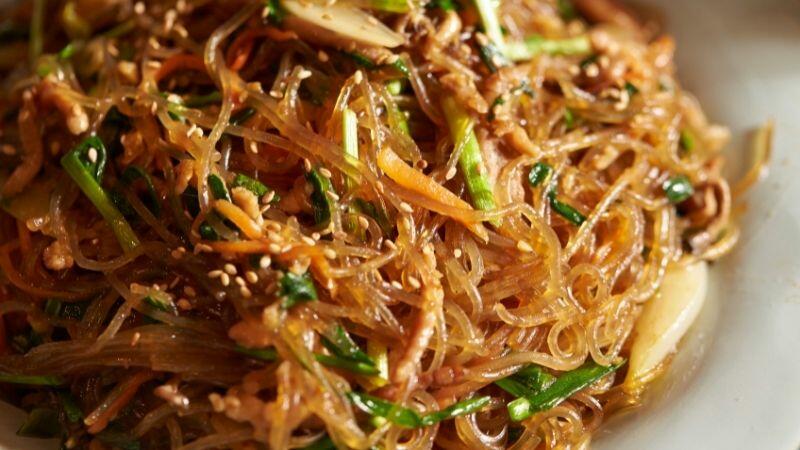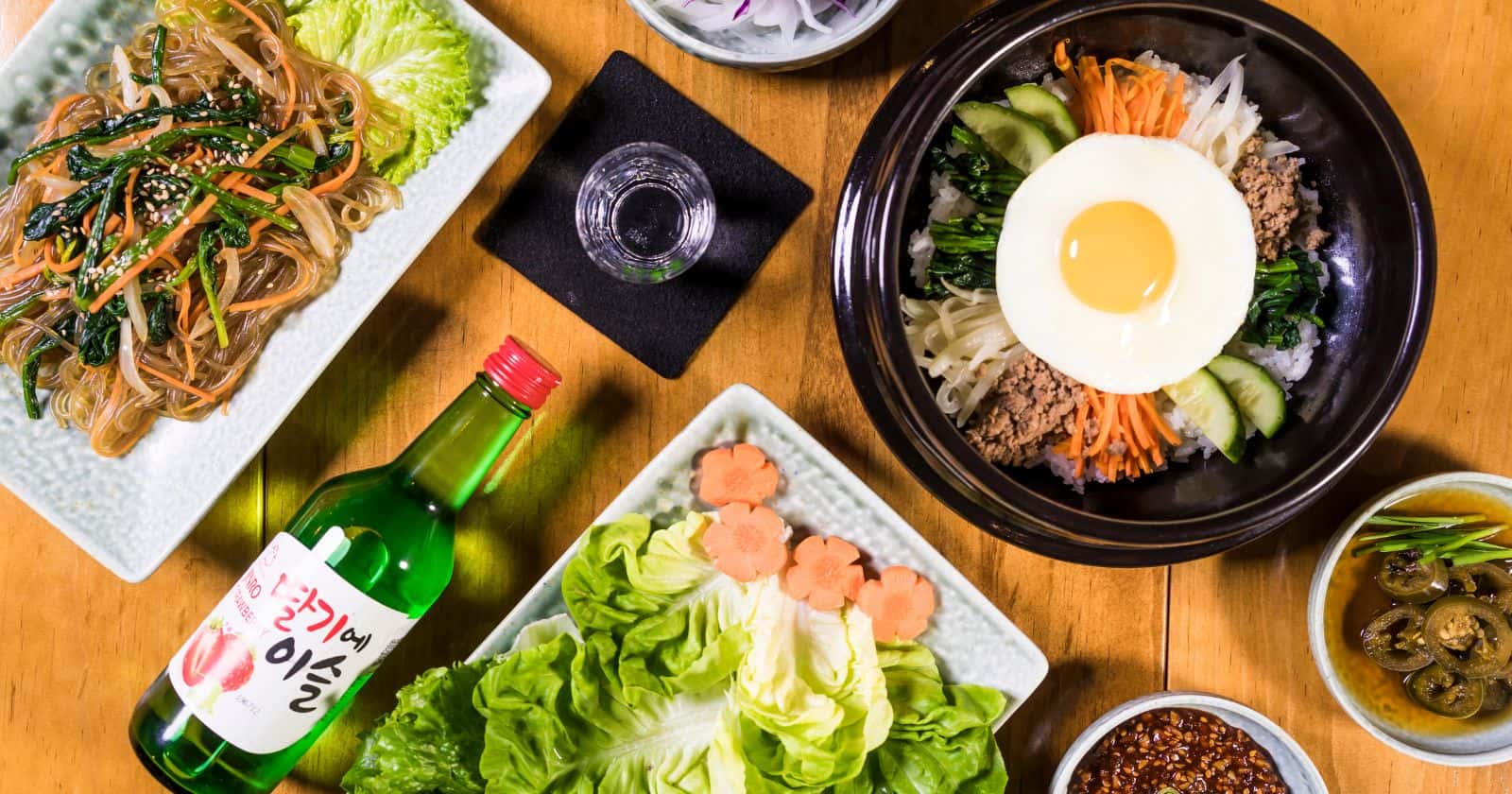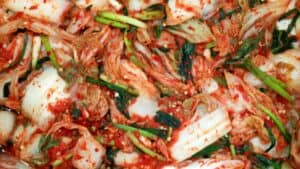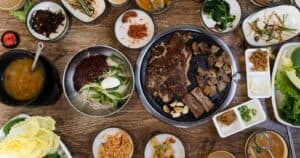If you love Korean food, you may have heard rumors about MSG being used a lot in Korean cooking. But is this really true? As a Korean food fan, it’s helpful to understand the facts about MSG so you know what’s really going on. This article will give you the inside scoop!
What is MSG?

First, let’s start with what MSG actually is. MSG stands for monosodium glutamate. It’s a common food additive used to enhance flavor in things like chips, fast food, canned soups, and more.
MSG is known for its “umami” taste. Umami is considered one of the five basic tastes, next to sweet, salty, sour, and bitter. It’s described as a savory, meaty taste. MSG brings out the umami flavors in food.
Some people claim MSG adds its own flavor. But really, it just enhances the existing tastes already in the dish.
Does Traditional Korean Cooking Use MSG?
Here’s a common myth: Korean food always contains added MSG. But actually, traditional Korean recipes don’t call for MSG.
Authentic Korean dishes rely on natural ingredients for flavor instead of additives like MSG. Things like:
- Soy sauce
- Gochujang (Korean chili paste)
- Doenjang (fermented soybean paste)
- Fish sauce
- Garlic
- Ginger
- Sesame oil
These ingredients add plenty of rich, savory taste on their own.
So while MSG use is common today, traditional Korean cooking does not depend on it for flavor.
When Did MSG Become Popular in Korea?
MSG has been used in Korean cooking more in modern times. But when and why did its use become so widespread?
Here’s a quick history:
- 1960s: MSG production started becoming industrialized in Korea, making it easy to access.
- 1970s: Korean cooks began using MSG powder and MSG-filled seasoning salts. This enhanced flavor quickly with convenience.
- 1980s: MSG use grew as more women entered the workforce. MSG helped save prep time in the kitchen.
So while MSG isn’t traditional, it gained popularity relatively recently for its convenience and flavor-boosting abilities.
Does All Korean Food Contain MSG?
Because MSG use has grown, does this mean all Korean dishes today contain it? Not exactly. Here are the facts:
- Some traditional Korean restaurants still do not use any MSG.
- Certain Korean cooks add MSG to some dishes, but not others.
- Using MSG is ultimately up to the preference of the individual cook.
So while MSG became more common in modern Korean cooking, its use is not universal. There are still MSG-free Korean options out there!
Dig Into These Classic Korean Dishes Minus MSG

Craving authentic Korean flavors but want to avoid MSG? The good news is there are many classic Korean dishes that skip the MSG entirely.
Here are some mouthwatering traditional recipes to enjoy guilt-free:
- Bibimbap: A colorful rice bowl topped with sautéed veggies, gochujang sauce, and a sunny-side up egg.
- Japchae: Sweet potato noodles stir-fried with thinly sliced beef and veggies.
- Bulgogi: Savory, garlicky grilled marinated beef.
- Tteokbokki: Chewy stir-fried rice cakes glazed in a sweet and spicy sauce.
- Naengmyeon: Chilled buckwheat noodles in a refreshing broth, garnished with pears.
- Samgyetang: A warming ginseng chicken soup, perfect for summer.
- Bossam: Tender boiled pork belly lettuce wraps with spicy dipping sauce.
- Jjamppong: A seafood noodle soup loaded with veggies and gochugaru
spice .
No MSG needed when you use quality ingredients like garlic, ginger, soy sauce, and gochujang! Remember to ask restaurants if dishes contain added MSG.
Natural MSG in Korean Ingredients
There’s also a lot of misunderstanding about natural MSG in Korean food. Certain Korean ingredients contain natural glutamates that add umami flavor:
- Mushrooms: Dried shiitake mushrooms are used in many Korean recipes. All mushrooms have high natural MSG levels.
- Seaweed: Dried seaweed is essential for making soup stocks. It adds plenty of savory flavor.
- Fermented foods: Things like gochujang, doenjang, and ganjang contain natural MSG formed during fermentation.
So even without added MSG powder, these ingredients add umami depth to Korean food naturally.
Is MSG Unhealthy or Dangerous?
There are a lot of fears about MSG being toxic or causing problems like headaches or allergic reactions. Here’s what health experts say:
- Most people can consume small amounts of added MSG safely with no issues.
- Large doses may cause temporary side effects in some individuals, like headaches.
- A small percentage of people could have MSG sensitivities. Reactions are usually mild.
- MSG allergies are extremely rare.
So while a few people may be sensitive, MSG is safe for most in moderation. Still, some prefer to avoid it.
Finding Korean Dishes Without MSG
If you want to reduce MSG, look for dishes labeled as:
- Traditional Korean cooking
- MSG-free
- No artificial flavors/preservatives
Also check ingredient lists to confirm no added MSG. Be aware that salty flavor alone doesn’t mean a dish contains MSG.
When eating out, don’t be afraid to ask about MSG use. Many Korean restaurants will happily accommodate requests for no extra MSG.
Satisfy Your Cravings Guilt-Free
Korean food is delicious with or without the addition of MSG. Following a healthy and balanced diet, you can certainly enjoy Korean cuisine even if you want to limit additives. Knowledge about MSG facts allows you to make informed choices.
Now that you know the inside scoop when it comes to MSG in Korean cooking, you can dig into all that mouthwatering Korean food with confidence!





